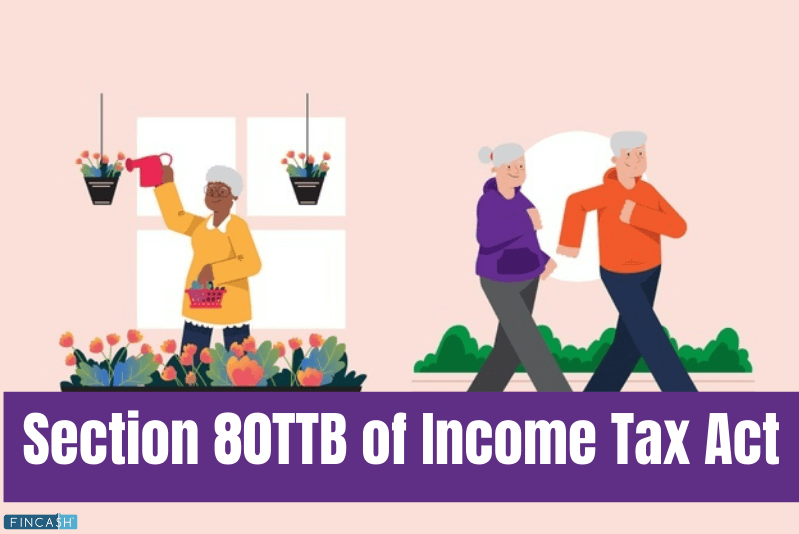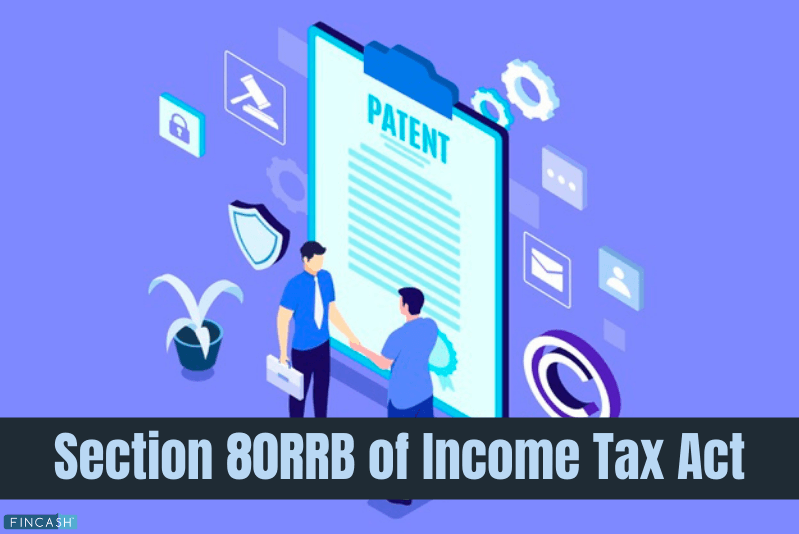Section 80TTB - Tax Deduction for Senior Citizens
In India, elderly members of the family are the most respected and important part of the household. Their guidance of the younger generation is considered to be valuable. The culture in India is much about providing the utmost care and support to them.

In order to keep up with the well-being of the elderly, it is important to deal with their issues like health care. These concerns could be both mental and physical, which can be pretty heavy on their finances. One of the many ways to aid this issue was to introduce tax Deduction. The government of India introduced a new section- Section 80 TTB in the Finance Budget 2018 - specially for the senior citizens in India.
What is Section 80TTB?
Section 80TTB is a provision under the income tax Act when a senior citizen of India above the age of 60 can any time during a concerned financial year claim tax deduction up to Rs. 50,000 on the interest Income from the gross total income for the year. This provision was brought into effect on April 1, 2018.
Deductions Eligible Under Section 80TTB
A senior citizen can claim a deduction of lower than Rs.50,000 from the gross total income. These include the following areas:
- Interest on Bank Deposits (Savings or Fixed deposits)
- Interest on deposits in Co-operative society engaged in the banking business
- Interest on deposits in co-operative engaged in mortgage bank or Land-development bank
- Interest on Post Office deposits
- Interest deduction is over and above the deduction limit of Rs. 1.5 lakh available under Section 80C
Eligibility Criteria
According to the IT Act, the eligibility criteria from Section 80TTB is mentioned below:
1. Category
The provisions under Section 80TTB is only applicable to senior citizens.
2. Age
Senior citizens above the age of 60 can avail the benefits mentioned under Section 80TTB of the Income Tax Act.
3. Nationality
Senior citizens residing in India can avail the benefits.
4. Deposit Account
Senior citizens with Savings Account, fixed and Recurring deposit accounts can avail the aforementioned benefits.
Talk to our investment specialist
Exceptions Under Section 80TTB
Mentioned below are the exceptions to avail the benefits:
1. Others
Only senior citizens can avail the benefits mentioned under Section 80TTB. Individuals and hindu undivided family (HUFs) cannot avail tax deduction under this.
2. Residence
Non-resident senior citizens cannot avail the tax deductions.
3. Savings Account Interest
The income from the interest of savings account owned by Associate of Persons, Body of Individuals, firms are not eligible for Section 80TTB deductions.
Difference between Section 80TTA and Section 80TTB
Section 80TTA is another section for tax deductions which is often confused with Section 80TTB. Mentioned below are the key differences between both the sections.
| Section 80TTA | Section 80TTB |
|---|---|
| Individuals and Hindu Undivided Family (HUF) eligible who are not senior citizens | Senior Citizens eligible only |
| NRIs and NROs are eligible under this section | NRIs are not eligible |
| Fixed deposits exemption not included under 80TTA | Savings bank accounts, fixed deposits, recurring deposit accounts included |
| Exemption limit of Rs. 10,000 per year | Exemption limit of Rs. 50,000 per year |
Meaning of Clause 30 of Finance Bill 2018
Clause 30 of the Finance Bill includes a new section 80TTB under the Income-tax act related to deduction in respect of interest on deposits made by senior citizens.
The new section provides that the beneficiary, who is a senior citizen, can avail benefits on income by way of interest in deposits with a banking company where the Banking Regulation Act, 1949 applies. This includes any bank or banking institution referred to in Section 51 of the act. The beneficiary can also avail benefits of income by way of interest in deposits with a co-operative society engaged in the business of banking or a post-office as defined in clause (k) of Section 2 of the Indian Post Office Act 1898. You can make a deduction of up to Rs. 50,000.
Conclusion
Section 80TTB is truly a benefit for Senior citizens in India. It provides financial convenience. Other than that, there are Section 80C and Section 80D through which citizens too can avail tax benefits.
All efforts have been made to ensure the information provided here is accurate. However, no guarantees are made regarding correctness of data. Please verify with scheme information document before making any investment.












